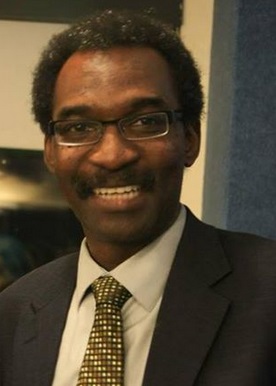| 07-23-2013, 06:57 PM |
ШөЩ„Ш§Шӯ ШҙШ№ЩҠШЁ
 ШөЩ„Ш§Шӯ ШҙШ№ЩҠШЁ ШөЩ„Ш§Шӯ ШҙШ№ЩҠШЁ
Registered: 04-24-2005
Total Posts: 2954
|
|
 South SudanвҖҷs Elites and the New Rift South SudanвҖҷs Elites and the New Rift
|
In the wake of the new rift among South SudanвҖҷs governing elites, there are some observations regarding the countryвҖҷs nation-building efforts on the one hand, and the real causes of that rift, which became controversial if not defective, on the other hand.
Indeed, those who supported the South Sudan case, then, for gaining all its rights through the Comprehensive Peace Agreement, CPA have a lot of reasons to see the new nation emerging to be stable, progressive, and democratic in example.
However, I have been watching South SudanвҖҷs political field since its independence and hoping that the highly paid price for the past sacrifices is always preoccupying the minds and hearts of the countryвҖҷs elites.
Yes, it is true that we have witnessed, since July, 20011, the developments at the level of societal structures. And that progress reminded us that our brothers and sisters in South Sudan are able to overcome the painful past, so long as they are now free of grudge toward each other.
In any case, the political intention of South SudanвҖҷs leaders could make the situation good or bad. TodayвҖҷs reality is that in the Third World personality, in many case, matters but not its capability. If this is so, then let us expect that South SudanвҖҷs nation-building effort be deemed by piety.
Needless to say, many of the politicians who put forward the concept of the New Sudan behaved with the same tools of the old Sudan. Therefore, one doesn't expect a good harvest for their business. Since they donвҖҷt deeply believe in the concepts of similar liberation movements in the Third World, those politicians are properly dangerous more than those who believe in the righteousness of the old SudanвҖҷs policy. Rather, these politicians want to change the political superstructure while forgetting the political infrastructure which drives all evil.
President Salva Kiir needs, as primarily responsible of the successful building of South SudanвҖҷs state structures, to wisely consider his presidential decisions. He has to be aware of the experience of SudanвҖҷs post-independence failed politics, which we are still paying the heavy price for.
From experience, taking power tools aggressively alone will not help in bringing stability to his homeland. But, as a leader of the efforts of complex construction, Mr Salva Kiir has to apply the required wisdom in dealing with disagreements over the countryвҖҷs nation-building efforts.
For those who oppose him with armed force, they should not expect that the threat of rebellion will necessarily achieve national goals. Just as Sudan itself was a victim of the ideology of exclusion, not compromise, the efforts of South SudanвҖҷs military elite will not help as dialogue does. Those engaged in armed movements, as a way to oppose South SudanвҖҷs political leadership will destroy the available stability if they did not read well the reasons that led to the fragmentation of Sudan, and the secession, and the now risky situation of the new nation.
We understand that Juba now faces more interior challenges, and there are priorities that require achievements amid very harsh conditions. Moreover, the new capital faces more external challenges compounded by serious plots that want revenge for the option the countryвҖҷs citizens took to separate from the regime of genocide.
But the only way out for Juba to succeed is to forget its devastating political disputes, and to remember the bloods that had been spilled on the road to independence.
In their political dealings, no one hopes that the southern elites reproduce - in the way to accomplishment of good politics - the failures of Sudanese elites, who didn't care for minimum nationality either. Also, what one hopes from the countryвҖҷs elite is to remember the sacrifices made by their citizens in order to build a bright future for all ethnic groups and individuals in the country.
*The writer is a Sudanese journalist working for Radio Sawa, in Washington DC. He can be reached at [email protected]
|
|
    
|

|

|

|
|
|